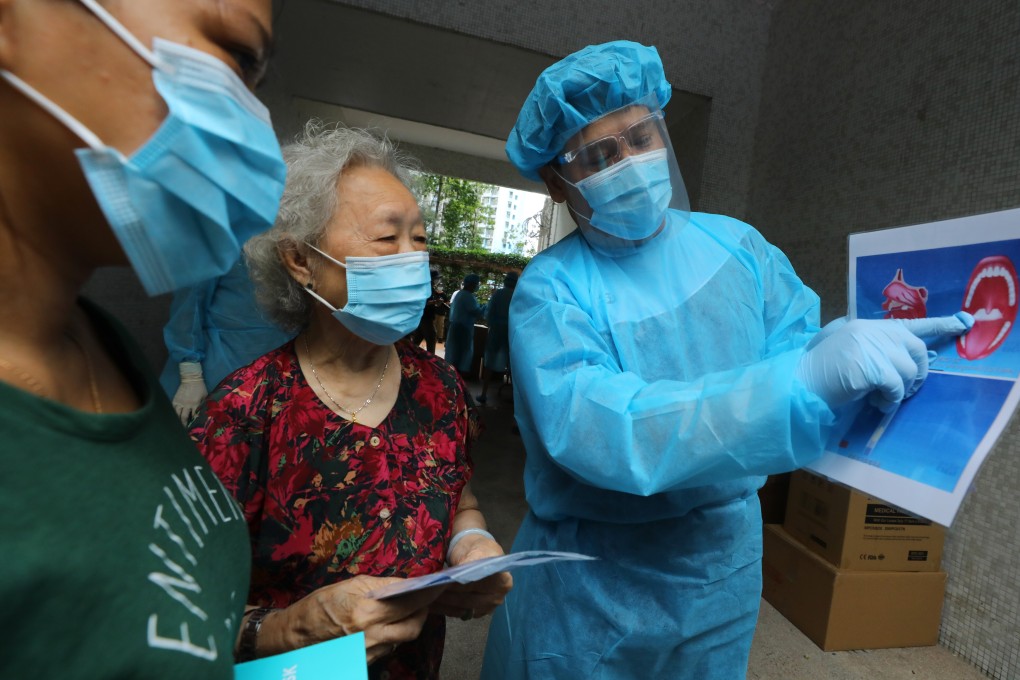Hong Kong third wave: massive voluntary coronavirus testing programme to kick off in two weeks as Carrie Lam calls for public support
- City leader says move will happen with help of mainland China team and private laboratories, dismisses rumours and ‘smears’ surrounding Beijing’s role
- Temporary laboratory to be set up at Sun Yat Sen Memorial Park in Sai Ying Pun, while 2,000 beds to be available at AsiaWorld-Expo centre

Lam said the government would expand community treatment facilities at the AsiaWorld-Expo centre and an area next to it, providing up to 2,000 beds. An experimental laboratory would also be set up at Sun Yat-sen Memorial Park, in Sai Ying Pun, she said.
Lam said it was only with the help of three mainland-linked laboratories – BGI, Kingmed and Hong Kong Molecular – that the city’s capacity to carry out the testing could be increased, and under no circumstances should Hongkongers doubt the sincerity of the central government.
If people still have concerns, they do not have to come forward. This is an entirely voluntary programme to provide testing for those who want to have a test
“We need the public’s support, understanding and cooperation when we combat the outbreak … and the protection of the public’s health and safety is always our top priority,” Lam said.
“We understand the public may have different comments, but this time, it’s a matter of life. I hope society can value science and evidence, and stop all kinds of conspiracies, defaming, smearing and creating conflicts, and should not undermine the relationships between the central government and Hong Kong, especially as it was the [city] government that sought the mainland’s help this time.”